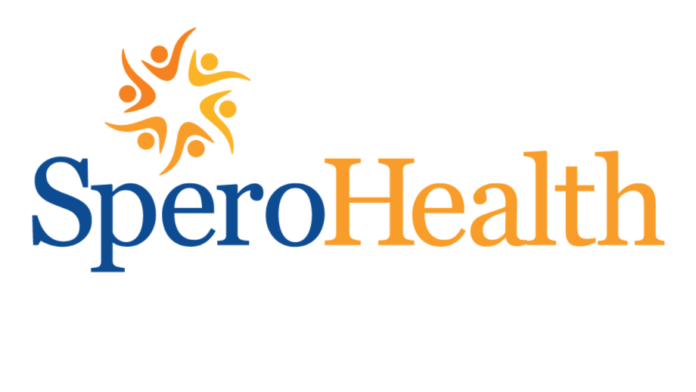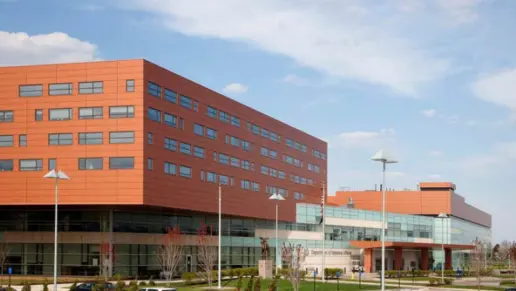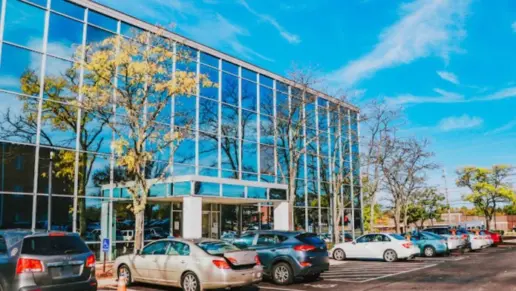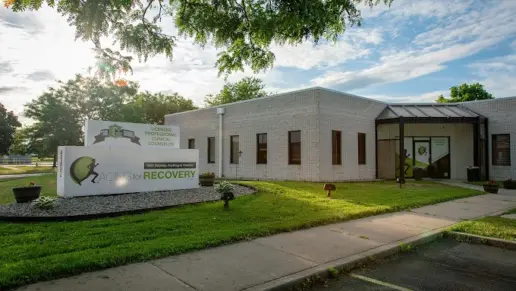About Spero Health
Spero Health is an addiction treatment center located in Zanesville, Ohio that treats individuals suffering from opioid addiction, alcoholism andd substance abuse including dual diagnosis disorders. They offer an outpatient program that includes several therapy options including medication assisted treatment (MAT). Those who require more intensive care may be referred to a nearby drug rehab center.
The outpatient program at Spero Health applies evidence-based methods of treatment to provide care. Counseling includes individual and group sessions, recovery support and educational resources once sobriety is reached. For more severe cases of addiction, treatment may include MAT, administered by medical professionals andd an individualized recovery plan. Medication options for withdrawal symptoms include Suboxone and Vivitrol.
Spero Health accepts Medicaid and most commercial major insurances, such as Aetna, BlueCross BlueShield, Humana, United Healthcare and others. Contact your provider to verify coverage because out of network benefits can vary.
Latest Reviews
Rehab Score
Gallery
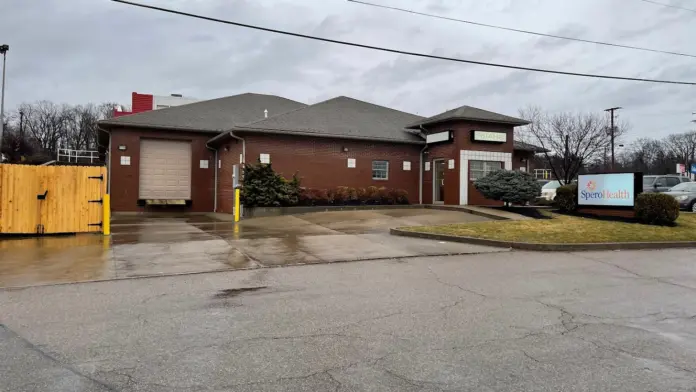
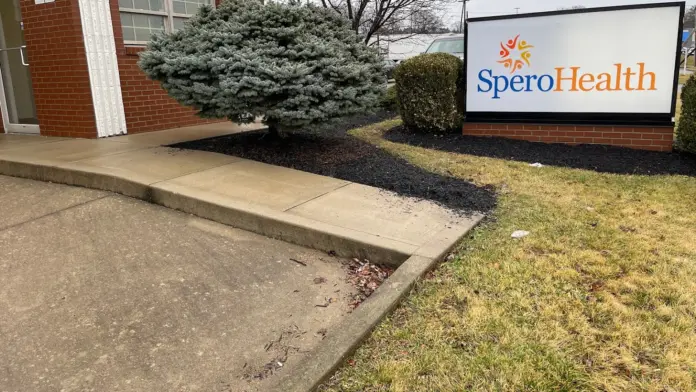
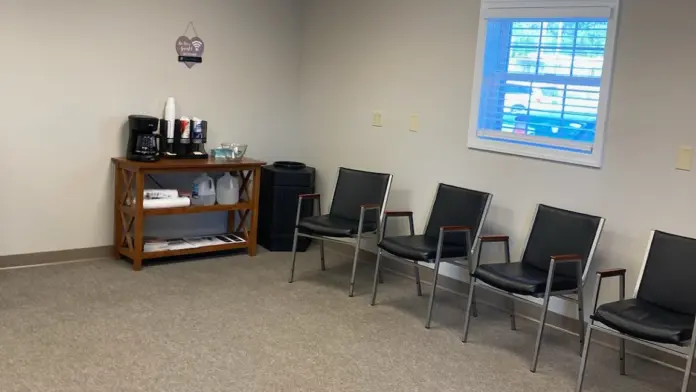
Location
Other Forms of Payment
Private insurance refers to any kind of healthcare coverage that isn't from the state or federal government. This includes individual and family plans offered by an employer or purchased from the Insurance Marketplace. Every plan will have different requirements and out of pocket costs so be sure to get the full details before you start treatment.
Self-pay involves paying for treatment out of your own pocket. You can use savings or credit, get a personal loan, or receive help from family and friends to fund your treatment. If you don't have insurance or your insurance plan doesn't cover a specific program, self-pay can help ensure you still get the care you need.
Financial aid can take many forms. Centers may have grants or scholarships available to clients who meet eligibility requirements. Programs that receive SAMHSA grants may have financial aid available for those who need treatment as well. Grants and scholarships can help you pai for treatment without having to repay.
Medicaid is a state based program that helps lower-income individuals and families pay for healthcare. Medicaid covers addiction treatment so those enrolled can use their coverage to pay for rehab. When a program accepts Medicaid the client often pays very little or nothing out of their own pocket.
Medicare is a federal program that provides health insurance for those 65 and older. It also serves people under 65 with chronic and disabling health challenges. To use Medicare for addiction treatment you need to find a program that accepts Medicare and is in network with your plan. Out of pocket costs and preauthorization requirements vary, so always check with your provider.
Military members, veterans, and eligible dependents have access to specific insurance programs that help them get the care they need. TRICARE and VA insurance can help you access low cost or no cost addiction and mental health treatment. Programs that accept military insurance often have targeted treatment focused on the unique challenges military members, veterans, and their families face.
Addiction Treatments
Levels of Care
Treatments
The goal of treatment for alcoholism is abstinence. Those with poor social support, poor motivation, or psychiatric disorders tend to relapse within a few years of treatment. For these people, success is measured by longer periods of abstinence, reduced use of alcohol, better health, and improved social functioning. Recovery and Maintenance are usually based on 12 step programs and AA meetings.
Drug rehab in Ohio provides comprehensive treatment to address the physical and psychological needs of those struggling with substance use disorders. This may involve inpatient and/or outpatient care.
Many of those suffering from addiction also suffer from mental or emotional illnesses like schizophrenia, bipolar disorder, depression, or anxiety disorders. Rehab and other substance abuse facilities treating those with a dual diagnosis or co-occurring disorder administer psychiatric treatment to address the person's mental health issue in addition to drug and alcohol rehabilitation.
Opioid rehabs specialize in supporting those recovering from opioid addiction. They treat those suffering from addiction to illegal opioids like heroin, as well as prescription drugs like oxycodone. These centers typically combine both physical as well as mental and emotional support to help stop addiction. Physical support often includes medical detox and subsequent medical support (including medication), and mental support includes in-depth therapy to address the underlying causes of addiction.
Substance use disorder is a disease that affects our brain and your behavior. At first, you have control over your choice to start using drugs. If you misuse a drug, its pleasurable effect eventually makes you want to keep using it. Over time, your brain actually changes in certain ways so that a powerful urge to use the drug controls your behavior. The expertly trained staff at SelfRefind is committed to helping individuals understand and address the issues that lead to addiction (substance use disorder).
Programs



Clinical Services
Group therapy is any therapeutic work that happens in a group (not one-on-one). Services are delivered primarily through group therapy but each patient is also assigned an individual therapist for weekly meetings while in treatment. Groups are small and generally do not exceed 10 people in a safe and comfortable environment.
In individual therapy, a patient meets one-on-one with a trained psychologist or counselor. Therapy is a pivotal part of effective substance abuse treatment, as it often covers root causes of addiction, including challenges faced by the patient in their social, family, and work/school life.
SelfRefind is helping fight the drug epidemic by specializing in an integrated Trauma Informed Recovery-Oriented Systems of Care model with emphasis on medication-assisted treatment for individuals struggling with substance use disorders. All staff complete training on trauma informed care recognizing that people often have many different types of trauma in their lives. SelfRefind realizes the prevalence of trauma and the role it sometimes plays in fueling addictive disorders. They teach their staff to recognize possible symptoms of trauma and have the supports in place to respond to the needs of our patients. People who have been traumatized need support and understanding from those around them. SelfRefind is committed to providing a safe, welcoming and comfortable environment for all people.
Research clearly demonstrates that recovery is far more successful and sustainable when loved ones like family members participate in rehab and substance abuse treatment. Genetic factors may be at play when it comes to drug and alcohol addiction, as well as mental health issues. Family dynamics often play a critical role in addiction triggers, and if properly educated, family members can be a strong source of support when it comes to rehabilitation.
Life skills trainings involve all the skills a person must have in order to function successfully in the world. These include time management, career guidance, money management, and effective communication. Truly successful addiction recovery is based on the ability to not only live substance-free, but to thrive. Life skills teaches the practical necessities of functioning in society, which sets clients up for success in life, and therefore sobriety.
Nutrition therapy, aka medical nutrition therapy (MNT), is a way of treating physical, emotional, and medical conditions through diet. Specific dietary plans are designed by professional nutritionists or registered dietitians, and patients follow them in order to positively affect their physical and mental health.
Nicotine Replacement Therapy (NRT) is a way of getting nicotine into the bloodstream without smoking. It uses products that supply low doses of nicotine to help people stop smoking. The goal of therapy is to cut down on cravings for nicotine and ease the symptoms of nicotine withdrawal.
Amenities
-
Private Rooms
Accreditations

The Commission on Accreditation of Rehabilitation Facilities (CARF) is a non-profit organization that specifically accredits rehab organizations. Founded in 1966, CARF's, mission is to help service providers like rehab facilities maintain high standards of care.
CARF Accreditation: Yes
Contact Information
833 James St
Zanesville, OH 43701
